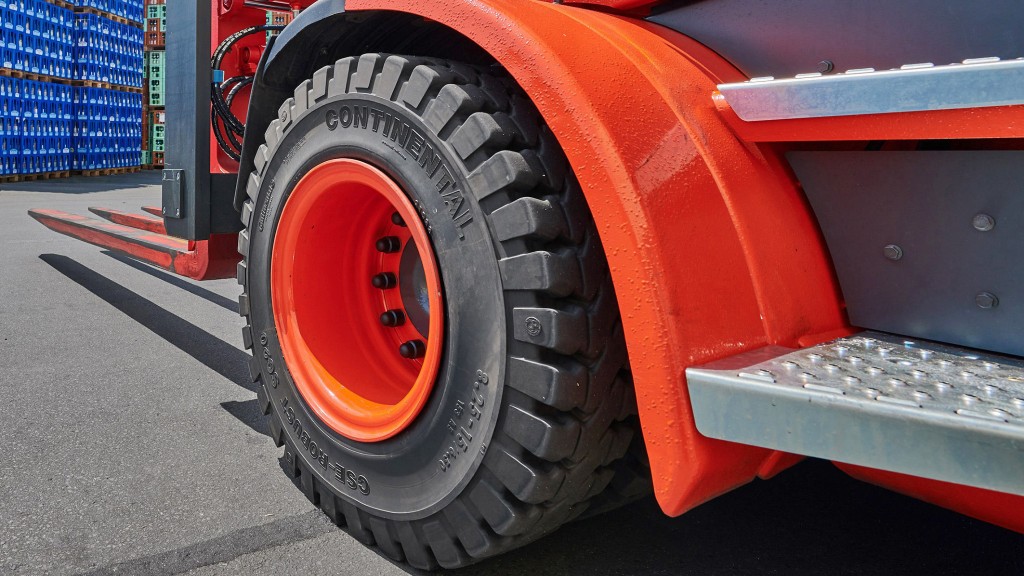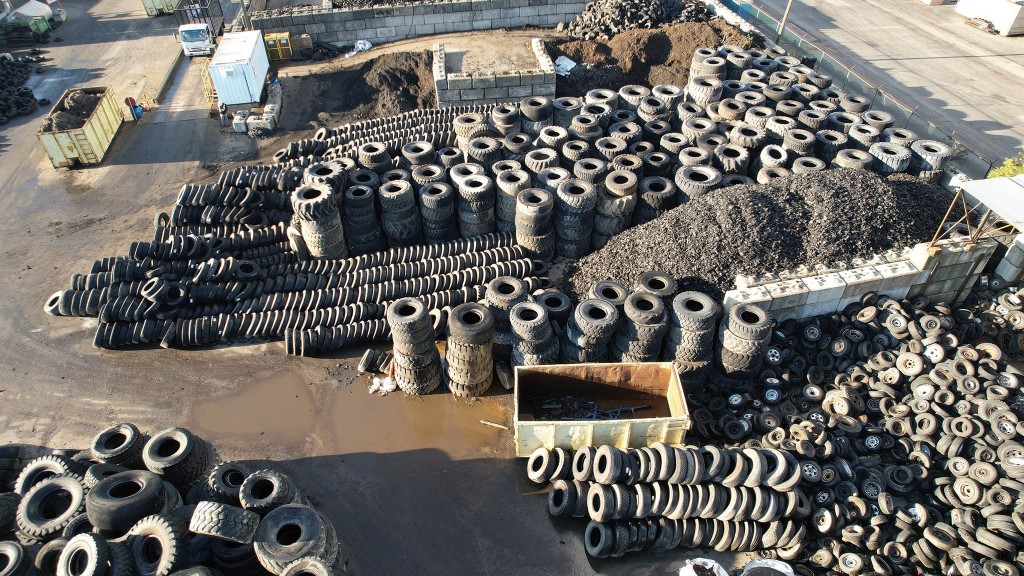Continental utilizes recovered carbon black in solid tires
Partnership with Pyrum Innovations enables sustainable tire production in Korbach, Germany

Continental has added recovered carbon black (rCB) to its newly produced Super Elastic solid tires at its tire plant in Korbach, Germany. This addition reduces the use of fossil raw materials and CO2 emissions in Continental's tire manufacturing. Solid tires such as Continental's SC20+ already contain around 60 percent renewable and recycled materials thanks to their high natural rubber content. By 2050 at the latest, Continental aims to use 100 percent sustainable materials in its tire products.
The recovered carbon black is supplied by Pyrum Innovations, one of Continental's partner companies. Pyrum breaks down end-of-life tires into individual components in industrial furnaces using a pyrolysis process. This allows valuable raw materials contained in end-of-life tires to be extracted and recycled. Solid tires have a high load capacity and are stable, puncture-proof, maintenance-free, and economical. They are mainly used in material handling by forklift trucks, airport vehicles, heavy transport vehicles, side loaders, platform trucks, and other industrial vehicles.
Advanced rubber compounds
"Sustainability is becoming increasingly important in the specialty tire segment. Our Super Elastic solid tires combine low rolling resistance, long service life, and a comparatively high proportion of sustainable materials," says Matthias-Stephan Müller, product manager for material handling tires in Continental's Specialty Tires business area.
Most forklift trucks in intralogistics are already powered electrically. The range and charging times of the battery employed are important. Tires with low rolling resistance can help to keep the energy consumption of electrically powered forklifts low, contributing to improved vehicle range.
The rubber compound is crucial for high energy efficiency and low rolling resistance, as valuable natural resources can be saved and the energy consumption of special vehicles reduced.
"Our customers want to make their operating processes even more environmentally friendly, resource-saving, and efficient," adds Müller. "Forklift trucks, for example, are required to do more work in the shortest possible time. This means moving heavier loads and travelling further distances at higher speeds. This is where Continental comes in with its customized tire solutions."
Recovered carbon black from end-of-life tires
Industrial carbon black is an important resource used as a filler in tire production and in the manufacture of other industrial rubber products. Continental says that the targeted use of carbon black in rubber compounds increases the stability, strength, and durability of tires.
"In Pyrum, we have found a partner that has developed a particularly efficient pyrolysis process. Together, we want to further develop the process for the pyrolysis of end-of-life tires," explains Matthias Haufe, head of material development and industrialization at Continental Tires.
In the future, the recovered carbon black will also be used in other Continental compounds. The use of recovered carbon black from end-of-life tires is an important step toward more circular business practices in Continental's tire production.



